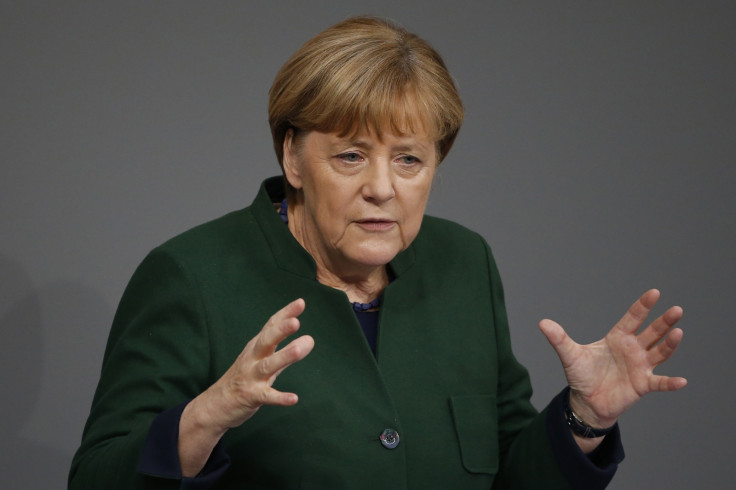Angela Merkel warns against internet trolls and 'fake news' that threaten democracy
'Opinions aren't formed the way they were 25 years ago,' Angela Merkel said.

German Chancellor Angela Merkel has warned against the threat of "fake news" and trolls online saying that public opinion is being "manipulated" on the internet. Speaking in Germany's parliament, the Bundestag, Merkel said democratic parties need to find ways to "reach and inspire people" and "confront this phenomenon" by regulating it, if necessary.
"Something has changed," Merkel said, The Local reports. "As globalisation has marched on, [political] debate is taking place in a completely new media environment. Opinions aren't formed the way they were 25 years ago.
"Today we have fake sites, bots, trolls — things that regenerate themselves, reinforcing opinions with certain algorithms, and we have to learn to deal with them."
Merkel, who recently announced that she will run for a fourth term as German chancellor next year, also warned that "populism and political extremes are growing in western democracies".
She voiced her support for stronger efforts and ways to combat hate speech in various forms. Earlier this month, German prosecutors launched an inquiry into multiple top Facebook executives, including CEO Mark Zuckerberg, for allegedly breaking national anti-hate speech laws and failing to remove content that contained racist abuse, support for terrorist groups, threats of violence and Holocaust denial on its platform.
"I believe we should not underestimate what is happening in the context of the internet and with digitalization; this is part of our reality," Merkel said. "We have regulations that allow for our press freedom, including the requirement for due diligence from journalists. Today we have many that experience a media that is based on very different foundations and is much less regulated."
Merkel's comments come amid the ongoing debate over the phenomenon of fake news online and its possible influence on the outcome of the recent US election. Many have argued that the dissemination of fake news online, particularly through social media platforms such as Facebook, helped swing the vote in President-elect Donald Trump's favour.
The far-right Breitbart News Network recently announced plans to expand its US operations and launch new websites in Germany and France ahead of the elections, sparking concerns over the potential swaying of public opinion and political discourse in the two European countries.
Last week, President Barack Obama criticised the growth and rampant spread of fake news on the internet saying "active misinformation" that is well-packaged is a threat to democracy.
"If everything seems to be the same and no distinctions are made, then we won't know what to protect," Obama said during a joint press conference with Merkel in Berlin. "We won't know what to fight for. And we can lose so much of what we've gained in terms of the kind of democratic freedoms and market-based economies and prosperity that we've come to take for granted."
A recent BuzzFeed study found that fake news stories about the US election outperformed real news stories on Facebook during the last three months of the presidential election campaign. Paul Horner, the writer behind some of the most popular fake news stories online, recently claimed that his stories may have helped Trump win the race to the White House.
Google and Facebook announced plans to bar websites that post fake news from using their advertising software and generating revenue via their platforms.
Zuckerberg also recently outlined how Facebook plans to tackle its fake news problem saying it "takes misinformation seriously" and is working hard to deal with the issue. However, he emphasised that "the problems here are complex, both technically and philosophically".
© Copyright IBTimes 2025. All rights reserved.





















